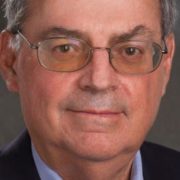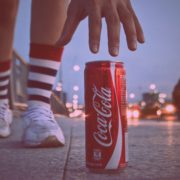Many big holding companies are reexamining their organizations. Activist investors are urging many of their holdings to sell businesses for immediate profit. Advertising holding companies are also considering sales of businesses along with the consolidation of agencies into a more cohesive whole.
General Electric, WPP, P&G, Nestlé are just some of the companies that are working towards leaner, more immediately profitable profiles. These brands see divestiture as the means to future proof their businesses and generate cash in a fast-changing world.
But, there are other ways to future proof. One of these ways is to generate deep customer insights, translate these insights into ideas and actions, and create a new future scenario in which your business will win. There is a one brand that is taking the opposite approach to divestiture, all in the name of future-proofing the business.
An article in Irish Independent, details the plan of Maxol. Maxol is an Irish fuel company that owns a lot of filling stations. Maxol also owns retail sites, car-washing sites, and it is a partner with a brand called Mace, a convenience store group. It is not a surprise that filling stations and convenience stores have symbiotic relationships. For example, in the US, there is Wawa, a chain of convenience stores and gas stations operating in 6 East Coast states, and the District of Columbia (Washington).
The CEO of Maxol, Brian Donaldson, sees the growth of current fuel-efficient vehicles, and electric vehicles. He also knows that the margins for food items are better than the margins for fuel. And, as fuel sales decline, food sales can grow.
Mr. Donaldson is not sitting still. He is beginning now to ensure that Maxol remains a relevant brand tomorrow. He says that his view is 2030. Where do we want the brand to be in 2030? It is urgent to start putting Maxol’s strategy in place today. And, having an “open mind” is critical. All options are on the table, as it were. In pursuit of the world in which Maxol will win, the brand has hired analysts and others to get a grasp on tomorrow’s possibilities.
CEO Donaldson has decided to create a brand that will stretch across fuel and food. Mr. Donaldson told Irish Independent,
“We’ll be extending our name and label to milk, bread, cheeses, fresh produce, snacks. What we’re looking at in terms of our in-store offering is almost trying to set that Avoca-type standard in terms of the ingredients and the quality of ingredients that go into our sandwiches, our prepared meals. And, as well, it’s about the provenance of those ingredients… we’re trying to connect into local supply chains….” (Avoca is another Irish brand that started as a wool mill and is now a clothing manufacturing, retail, and food business selling a range of Avoca-branded items across soft furnishings, ceramics, books, soaps, perfumes, food and woolens.)
Rather than complacency, the vision for moving forward is expansive.
“What we’re looking at is: do we go into new energy markets, do we take ourselves onto the high street, do we start looking at standalone dry sites, do we look at taking a food franchise and taking that to the high street, do we look at supply chain and actually strengthening our supply chain by taking a shareholding? “We’re looking at everything. I think it would be wrong of me to focus purely on what we’re doing [at the moment].”
CEO Donaldson will reimage 70 stores, while deciding on whether some may evolve as food only, fuel only, or sites to be sold off or used to build apartments. His over-arching vision is to grow Maxol for the future leveraging any and all opportunities that appear to offer high quality revenue growth.
CEOs cannot forecast the future with certainty. Brands and their leaders want certainty about tomorrow before making decisions today. Yet forecasting is fallible. A futurist once stated, “The objective is not to fore-cast the future, for no-one can tell what the future will be. The objective is to take responsibility as an organization for the future.”
Being prepared for the future is called future proofing. Future proofing is not foolproof, but it is a serious step in the right direction. Leaders like Brian Donaldson understand that brands can be future-proofed by leveraging the best opportunities that may be available.



